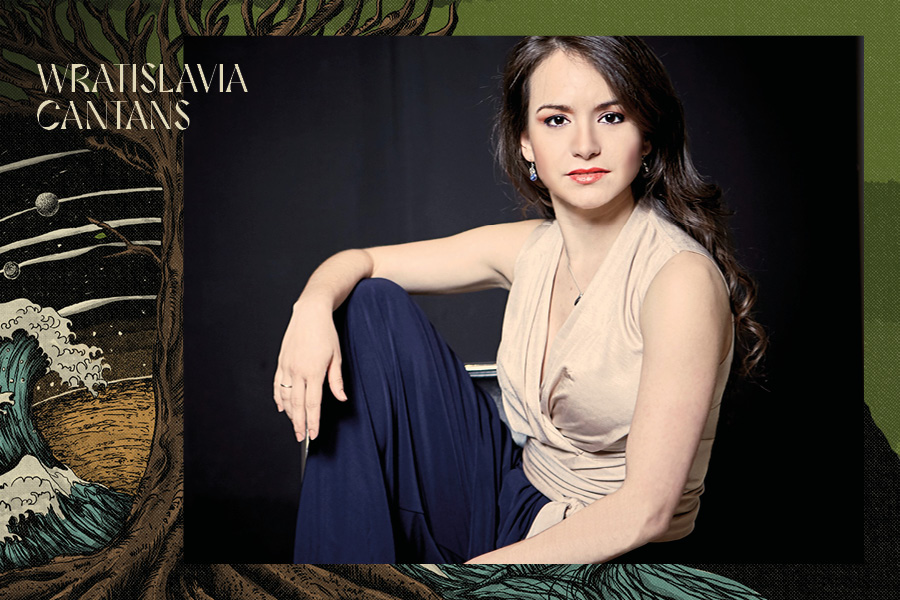Participating in the premiere of a work of music is always a special experience – both for the artists and the listeners. The concert of the Musica Boscareccia ensemble will be an opportunity to listen to the first performance, in contemporary times, of Ave Regina in A minor by Francesco Corselli – an artist who worked at the turn of Baroque and Classicism. In addition to his works, the programme will include other works on Marian themes.
The inspiration for the name of the Spanish ensemble Musica Boscareccia was a collection of songs by the Baroque composer Johann Hermann Schein published in Leipzig in 1621 under the same title. In English, it means “music of the forest” (the German phrase is Wald Liederlein, “songs of the forest”). The idea came from soprano Alicia Amo and violinist Andoni Mercer. It is thanks to the determination of the latter that Corselli’s Ave Regina in A minor for soprano, strings and basso continuo will be performed during the concert – he reconstructed the piece and prepared it for performance. The title is an incipit that means “Hail, Queen of Heaven” – it is a Marian antiphon recited during the liturgy of the hours. This composition will open the entire programme and close it with two other works by the same author – Concertino a cuatro for strings and basso continuo and Regina coeli in G minor for soprano, strings and basso continuo. The Regina coeli has to do with another antiphon that is sung or recited during the Easter season. Their author was born in Piacenza, Italy, but his parents came from France. Before the age of thirty, the artist left for Madrid, where he gained fame and recognition as the author of numerous sacred works. In 1738, at the age of thirty-three, he became Kapellmeister of the royal court. The performance of Musica Boscareccia will be a great opportunity to get to know the music of this forgotten composer.
The programme also features two settings of another antiphon – Salve Regina. The author of the first is Giovanni Battista Pergolesi. Although he lived only twenty-six years, he is considered one of the leading Italian composers of the Baroque era. He excelled at writing comic operas but was a versatile artist, as evidenced by his many sacred compositions. The author of the second setting of the antiphon is José de Nebra, who combined Spanish and Italian elements in his Classicist works. The programme will be complemented by instrumental compositions: the Fugue in D minor and Sonata in D minor by Sebastián de Albero (these works will be performed in Mercer’s arrangement for strings and basso continuo), and the Harpsichord Sonata in D minor No. 117 by Antonio Soler.
In co-production with:


